| 1 x afterRenderRawModule mod_tags_popular (Search) (40.95KB) (27.06%) | 49.62ms |
| 1 x afterRenderRawModule mod_articles_category (READ MORE...) (5.47KB) (24.97%) | 45.77ms |
| 1 x afterRenderComponent com_tags (1.53MB) (17.02%) | 31.20ms |
| 1 x afterInitialise (1.28MB) (8.56%) | 15.70ms |
| 1 x afterRender (297.82KB) (4.01%) | 7.34ms |
| 1 x afterRoute (840KB) (3.27%) | 6.00ms |
| 1 x beforeRenderRawModule mod_articles_category (READ MORE...) (439.86KB) (3.02%) | 5.53ms |
| 1 x beforeRenderRawModule mod_custom (Chronic fatigue tied Alan to his bed but Q10 capsules saved him:) (244.28KB) (1.3%) | 2.38ms |
| 1 x afterRenderRawModule mod_finder () (128.59KB) (1.16%) | 2.12ms |
| 1 x afterRenderRawModule mod_languages (Sprogskift) (22.56KB) (1.06%) | 1.94ms |
| 1 x afterDispatch (27.47KB) (1.04%) | 1.91ms |
| 1 x afterRenderRawModule mod_menu (Main Menu - English) (192.45KB) (0.89%) | 1.62ms |
| 1 x afterRenderRawModule mod_custom () (22.64KB) (0.65%) | 1.19ms |
| 1 x After Access::preloadComponents (all components) (103.05KB) (0.49%) | 894μs |
| 1 x afterRenderRawModule mod_menu (Main Menu - English) (6.3KB) (0.46%) | 851μs |
| 1 x afterLoad (456.34KB) (0.43%) | 794μs |
| 1 x afterRenderRawModule mod_finder () (6.29KB) (0.41%) | 746μs |
| 1 x afterRenderRawModule mod_languages (Sprogskift Mobil) (3.89KB) (0.4%) | 729μs |
| 1 x beforeRenderRawModule mod_menu (Main Menu - English) (29.14KB) (0.38%) | 702μs |
| 1 x afterRenderRawModule mod_menu (Are you getting enough vitamins and minerals?) (22.39KB) (0.34%) | 625μs |
| 1 x Before Access::preloadComponents (all components) (50.9KB) (0.31%) | 561μs |
| 1 x beforeRenderModule mod_articles_category (READ MORE...) (20.82KB) (0.24%) | 449μs |
| 1 x beforeRenderComponent com_tags (20.62KB) (0.18%) | 335μs |
| 1 x afterRenderRawModule mod_menu (Did you know.....) (25.52KB) (0.16%) | 285μs |
| 1 x afterRenderRawModule mod_menu (The key to increased well-being) (17.83KB) (0.15%) | 268μs |
| 1 x afterRenderRawModule mod_custom (BOOST YOUR IMMUNE DEFENSE) (3.8KB) (0.13%) | 245μs |
| 1 x afterRenderRawModule mod_custom (Cholesterol-lowering without side effects:) (1.06KB) (0.12%) | 217μs |
| 1 x beforeRenderRawModule mod_custom () (8.66KB) (0.11%) | 200μs |
| 1 x afterRenderRawModule mod_custom () (904B) (0.1%) | 186μs |
| 1 x beforeRenderRawModule mod_custom () (6.62KB) (0.09%) | 161μs |
| 1 x beforeRenderRawModule mod_menu (Main Menu - English) (5.07KB) (0.07%) | 133μs |
| 1 x afterRenderRawModule mod_custom () (896B) (0.05%) | 98μs |
| 1 x beforeRenderRawModule mod_custom () (688B) (0.05%) | 96μs |
| 1 x After Access::getAssetRules (id:8 name:com_content) (7.05KB) (0.04%) | 73μs |
| 1 x afterRenderModule mod_custom (Chronic fatigue tied Alan to his bed but Q10 capsules saved him:) (1.3KB) (0.04%) | 69μs |
| 1 x afterRenderModule mod_menu (Main Menu - English) (4.86KB) (0.03%) | 64μs |
| 1 x afterRenderModule mod_custom () (1.23KB) (0.03%) | 60μs |
| 1 x afterRenderRawModule mod_custom (Get additionel and more detailed knowledge ) (1.55KB) (0.03%) | 60μs |
| 1 x beforeRenderRawModule mod_custom (Overview of vitamins, minerals, and essential fatty acids) (768B) (0.03%) | 56μs |
| 1 x beforeRenderRawModule mod_custom (BOOST YOUR IMMUNE DEFENSE) (6.45KB) (0.03%) | 55μs |
| 1 x afterRenderModule mod_finder () (1.23KB) (0.03%) | 53μs |
| 1 x afterRenderModule mod_menu (Main Menu - English) (1.25KB) (0.03%) | 51μs |
| 1 x afterRenderRawModule mod_custom (Chronic fatigue tied Alan to his bed but Q10 capsules saved him:) (1.06KB) (0.03%) | 48μs |
| 1 x afterRenderModule mod_articles_category (READ MORE...) (1.25KB) (0.02%) | 41μs |
| 1 x afterRenderModule mod_finder () (3.29KB) (0.02%) | 41μs |
| 1 x beforeRenderRawModule mod_custom (Get additionel and more detailed knowledge ) (816B) (0.02%) | 36μs |
| 1 x afterRenderModule mod_custom (Cholesterol-lowering without side effects:) (1.28KB) (0.02%) | 36μs |
| 1 x afterRenderRawModule mod_custom (Useful Links) (1.02KB) (0.02%) | 31μs |
| 1 x afterRenderModule mod_languages (Sprogskift Mobil) (1.27KB) (0.02%) | 31μs |
| 1 x afterRenderModule mod_custom () (2.43KB) (0.02%) | 28μs |
| 1 x afterRenderRawModule mod_custom (Overview of vitamins, minerals, and essential fatty acids) (960B) (0.01%) | 26μs |
| 1 x afterRenderModule mod_languages (Sprogskift) (5.31KB) (0.01%) | 26μs |
| 1 x Before Access::getAssetRules (id:8 name:com_content) (840B) (0.01%) | 25μs |
| 1 x afterRenderModule mod_custom (BOOST YOUR IMMUNE DEFENSE) (1.28KB) (0.01%) | 25μs |
| 1 x afterRenderModule mod_custom (Antiaging) (3.77KB) (0.01%) | 24μs |
| 1 x afterRenderModule mod_custom () (2.71KB) (0.01%) | 23μs |
| 1 x afterRenderModule mod_custom (Overview of vitamins, minerals, and essential fatty acids) (1.31KB) (0.01%) | 23μs |
| 1 x afterRenderModule mod_tags_popular (Search) (1.27KB) (0.01%) | 22μs |
| 1 x afterRenderModule mod_custom (Get additionel and more detailed knowledge ) (1.3KB) (0.01%) | 21μs |
| 1 x afterRenderRawModule mod_custom (Q10 goes by many names) (928B) (0.01%) | 20μs |
| 1 x afterRenderModule mod_custom (Q10 goes by many names) (1.27KB) (0.01%) | 20μs |
| 1 x afterRenderModule mod_menu (Are you getting enough vitamins and minerals?) (1.3KB) (0.01%) | 20μs |
| 1 x afterRenderModule mod_menu (The key to increased well-being) (1.28KB) (0.01%) | 20μs |
| 1 x afterRenderModule mod_custom (Useful Links) (1.27KB) (0.01%) | 20μs |
| 1 x beforeRenderRawModule mod_languages (Sprogskift) (3.94KB) (0.01%) | 20μs |
| 1 x afterRenderRawModule mod_custom (Check this before you buy a Q10 product) (944B) (0.01%) | 19μs |
| 1 x afterRenderModule mod_custom (Check this before you buy a Q10 product) (1.28KB) (0.01%) | 19μs |
| 1 x afterRenderModule mod_custom (Weight loss that works) (1.27KB) (0.01%) | 19μs |
| 1 x afterRenderModule mod_custom (Are you taking supplements) (1.28KB) (0.01%) | 19μs |
| 1 x afterRenderModule mod_menu (Did you know.....) (1.27KB) (0.01%) | 19μs |
| 1 x afterRenderRawModule mod_custom (Are you taking supplements) (1.03KB) (0.01%) | 18μs |
| 1 x beforeRenderRawModule mod_languages (Sprogskift Mobil) (912B) (0.01%) | 18μs |
| 1 x beforeRenderRawModule mod_menu (The key to increased well-being) (736B) (0.01%) | 18μs |
| 1 x beforeRenderModule mod_custom (Antiaging) (336B) (0.01%) | 18μs |
| 1 x afterRenderRawModule mod_custom (Weight loss that works) (1.03KB) (0.01%) | 17μs |
| 1 x afterRenderRawModule mod_custom (Antiaging) (912B) (0.01%) | 17μs |
| 1 x beforeRenderRawModule mod_tags_popular (Search) (2.36KB) (0.01%) | 15μs |
| 1 x beforeRenderRawModule mod_finder () (6.34KB) (0.01%) | 15μs |
| 1 x beforeRenderRawModule mod_menu (Did you know.....) (720B) (0.01%) | 14μs |
| 1 x beforeRenderRawModule mod_custom (Cholesterol-lowering without side effects:) (368B) (0.01%) | 14μs |
| 2 x beforeRenderModule mod_finder () (704B) (0.01%) | 14μs |
| 1 x beforeRenderRawModule mod_custom (Useful Links) (1.06KB) (0.01%) | 14μs |
| 1 x beforeRenderModule mod_custom (BOOST YOUR IMMUNE DEFENSE) (6.81KB) (0.01%) | 14μs |
| 3 x beforeRenderModule mod_custom () (704B) (0.01%) | 13μs |
| 1 x beforeRenderRawModule mod_menu (Are you getting enough vitamins and minerals?) (2.5KB) (0.01%) | 12μs |
| 1 x beforeRenderModule mod_custom (Overview of vitamins, minerals, and essential fatty acids) (384B) (0.01%) | 12μs |
| 1 x beforeRenderModule mod_menu (Are you getting enough vitamins and minerals?) (2.13KB) (0.01%) | 12μs |
| 1 x beforeRenderModule mod_tags_popular (Search) (1.98KB) (0.01%) | 11μs |
| 1 x beforeRenderRawModule mod_custom (Q10 goes by many names) (608B) (0.01%) | 10μs |
| 1 x beforeRenderRawModule mod_custom (Antiaging) (720B) (0.01%) | 10μs |
| 1 x beforeRenderModule mod_custom (Get additionel and more detailed knowledge ) (1.17KB) (0.01%) | 10μs |
| 1 x beforeRenderModule mod_custom (Check this before you buy a Q10 product) (352B) (0.01%) | 10μs |
| 1 x beforeRenderModule mod_menu (The key to increased well-being) (352B) (0.01%) | 10μs |
| 1 x beforeRenderModule mod_menu (Did you know.....) (336B) (0.01%) | 10μs |
| 2 x beforeRenderModule mod_menu (Main Menu - English) (720B) (0.01%) | 10μs |
| 1 x beforeRenderRawModule mod_custom (Check this before you buy a Q10 product) (752B) (0%) | 9μs |
| 1 x beforeRenderRawModule mod_custom (Weight loss that works) (736B) (0%) | 9μs |
| 1 x beforeRenderModule mod_custom (Q10 goes by many names) (208B) (0%) | 9μs |
| 1 x beforeRenderModule mod_custom (Are you taking supplements) (352B) (0%) | 9μs |
| 1 x beforeRenderModule mod_custom (Weight loss that works) (336B) (0%) | 9μs |
| 1 x beforeRenderRawModule mod_finder () (2.3KB) (0%) | 9μs |
| 1 x beforeRenderRawModule mod_custom (Are you taking supplements) (736B) (0%) | 9μs |
| 1 x beforeRenderModule mod_custom (Useful Links) (1.44KB) (0%) | 8μs |
| 1 x beforeRenderModule mod_languages (Sprogskift) (720B) (0%) | 8μs |
| 1 x beforeRenderModule mod_custom (Chronic fatigue tied Alan to his bed but Q10 capsules saved him:) (768B) (0%) | 5μs |
| 1 x beforeRenderModule mod_languages (Sprogskift Mobil) (720B) (0%) | 4μs |
| 1 x beforeRenderModule mod_custom (Cholesterol-lowering without side effects:) (752B) (0%) | 2μs |
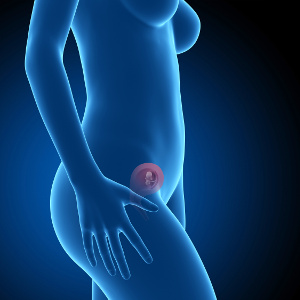 Around one in six pregnancies results in spontaneous abortion. Although there can be different reasons for this, scientists have found that eating a healthy diet with lots of vegetables, fruit, fish, shellfish, eggs, and grains can lower the risk by over 50 percent. This was shown in a meta-analysis from the University of Birmingham in England. Earlier research shows that selenium, a trace element that many people are deficient in, plays a particularly important role.
Around one in six pregnancies results in spontaneous abortion. Although there can be different reasons for this, scientists have found that eating a healthy diet with lots of vegetables, fruit, fish, shellfish, eggs, and grains can lower the risk by over 50 percent. This was shown in a meta-analysis from the University of Birmingham in England. Earlier research shows that selenium, a trace element that many people are deficient in, plays a particularly important role.







 According to Bruce Ames, an American biochemist, ageing processes are largely due to lack of nutrients. One important contributing factor is the fact that our uptake and utilization of vitamins and minerals decrease with age. In addition, a lot of different types of medicine block our ability to utilize different nutrients. As a result of this, many of our enzyme processes slow down, making our cells increasingly vulnerable and that increases our risk of disease. Nonetheless, there is a lot we can do to optimize our intake and utilization of nutrients, particularly with respect to vitamin B12, vitamin D, calcium, iron, selenium, and zinc. It is also worth taking a look at Q10 for energy turnover and melatonin for healthy sleep. Our endogenous synthesis of both compounds decreases with age.
According to Bruce Ames, an American biochemist, ageing processes are largely due to lack of nutrients. One important contributing factor is the fact that our uptake and utilization of vitamins and minerals decrease with age. In addition, a lot of different types of medicine block our ability to utilize different nutrients. As a result of this, many of our enzyme processes slow down, making our cells increasingly vulnerable and that increases our risk of disease. Nonetheless, there is a lot we can do to optimize our intake and utilization of nutrients, particularly with respect to vitamin B12, vitamin D, calcium, iron, selenium, and zinc. It is also worth taking a look at Q10 for energy turnover and melatonin for healthy sleep. Our endogenous synthesis of both compounds decreases with age. Main meals are vital for stabilizing blood sugar levels, which makes it easier to concentrate in school. Fruit and vegetables are good sources of
Main meals are vital for stabilizing blood sugar levels, which makes it easier to concentrate in school. Fruit and vegetables are good sources of 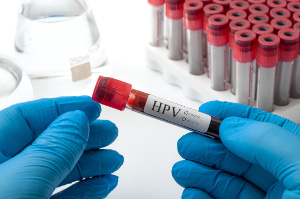 The majority of sexually active people contract HPV (human papilloma virus), of which there are several types. Normally, the infection goes away by itself but in some cases it becomes chronic. This increases the risk of serious cell changes in the cervix which, in worst case, can result in cervical cancer. An American study has found that having adequate levels of five different antioxidants – albumin plus vitamins A, B2, E, and folic acid – may lower papilloma virus infections that are linked to cervical cancer.
The majority of sexually active people contract HPV (human papilloma virus), of which there are several types. Normally, the infection goes away by itself but in some cases it becomes chronic. This increases the risk of serious cell changes in the cervix which, in worst case, can result in cervical cancer. An American study has found that having adequate levels of five different antioxidants – albumin plus vitamins A, B2, E, and folic acid – may lower papilloma virus infections that are linked to cervical cancer.
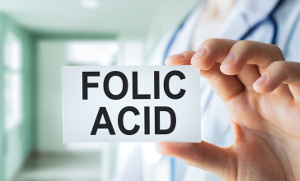
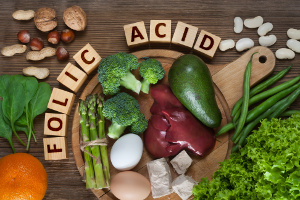
 People suffering from the Crohn’s disease, an inflammatory bowel disorder, often lack
People suffering from the Crohn’s disease, an inflammatory bowel disorder, often lack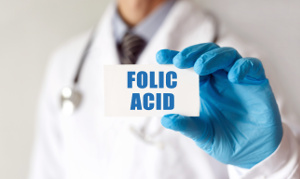 Preeclampsia is a serious pregnancy disorder with elevated blood pressure, proteinuria, and life-threatening complications in severe cases. It has already been reported that folic acid supplements help prevent preeclampsia in pregnancy. According to a new study that is published in Pregnancy Hypertension, taking even larger quantities of
Preeclampsia is a serious pregnancy disorder with elevated blood pressure, proteinuria, and life-threatening complications in severe cases. It has already been reported that folic acid supplements help prevent preeclampsia in pregnancy. According to a new study that is published in Pregnancy Hypertension, taking even larger quantities of 
 PCOS – or polycystic ovary syndrome – is a problem that occurs in 5-10 percent of women of childbearing age. It is the most common cause of involuntary infertility. Related symptoms include tiredness, hirsutism (male hair growth), acne, and irregular menstrual periods. PCOS is often linked to instable blood sugar, increased risk of insulin resistance, overweight, cardiovascular disease, type 2 diabetes, and autoimmune diseases like Hashimoto’s thyroiditis that causes slow metabolism. Diet and exercise mean a lot in terms of prevention and treatment. The same is the case with different vitamins and minerals. We will be looking closer at B vitamins, vitamin D, vitamin E, and coenzyme Q10, plus magnesium, zinc, selenium, chromium, iodine, and fish oil. We will also be looking at how relevant supplements, according to science, can help control blood sugar levels and the hormone balance.
PCOS – or polycystic ovary syndrome – is a problem that occurs in 5-10 percent of women of childbearing age. It is the most common cause of involuntary infertility. Related symptoms include tiredness, hirsutism (male hair growth), acne, and irregular menstrual periods. PCOS is often linked to instable blood sugar, increased risk of insulin resistance, overweight, cardiovascular disease, type 2 diabetes, and autoimmune diseases like Hashimoto’s thyroiditis that causes slow metabolism. Diet and exercise mean a lot in terms of prevention and treatment. The same is the case with different vitamins and minerals. We will be looking closer at B vitamins, vitamin D, vitamin E, and coenzyme Q10, plus magnesium, zinc, selenium, chromium, iodine, and fish oil. We will also be looking at how relevant supplements, according to science, can help control blood sugar levels and the hormone balance.
 Glioblastoma is a the most common type of brain tumor and is very aggressive. Existing therapies are not all that effective and most people die within a few years after being diagnosed with the disease. It is essential to have more focus on prevention, and diet plays a major role. According to a Chinese population study,
Glioblastoma is a the most common type of brain tumor and is very aggressive. Existing therapies are not all that effective and most people die within a few years after being diagnosed with the disease. It is essential to have more focus on prevention, and diet plays a major role. According to a Chinese population study,  Non-alcoholic fatty liver disease (NAFLD) is an insidious disease that is spreading like a bushfire, and it is typically seen in connection with overweight. Many people with the disease develop a type of liver inflammation and scarring that can be potentially life-threatening. According to a study that is published in Journal of Hepatology, supplementation with
Non-alcoholic fatty liver disease (NAFLD) is an insidious disease that is spreading like a bushfire, and it is typically seen in connection with overweight. Many people with the disease develop a type of liver inflammation and scarring that can be potentially life-threatening. According to a study that is published in Journal of Hepatology, supplementation with 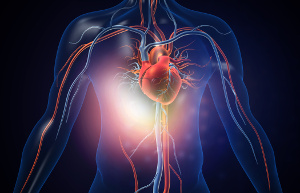 Cardiovascular disease is still the leading cause of death, and both diet and lifestyle are of huge importance. According to a new meta-analysis, fish oil, folic acid, and Q10 are some of nutrients with the greatest potential to lower the risk. It is important to underline that supplements are not likely to make much of a difference if the dosage is too low or if the quality of the preparations is poor.
Cardiovascular disease is still the leading cause of death, and both diet and lifestyle are of huge importance. According to a new meta-analysis, fish oil, folic acid, and Q10 are some of nutrients with the greatest potential to lower the risk. It is important to underline that supplements are not likely to make much of a difference if the dosage is too low or if the quality of the preparations is poor. "After about one week of taking the Q10 supplement I could feel a huge difference," says 23-year old Alan Piccini, who has been suffering from extreme fatigue and muscle aches ever since he was a child.
"After about one week of taking the Q10 supplement I could feel a huge difference," says 23-year old Alan Piccini, who has been suffering from extreme fatigue and muscle aches ever since he was a child. “Taking capsules with co-enzyme Q10 has freed me of the severe side effects of my cholesterol lowering medicine,” Mrs Franken explains.
“Taking capsules with co-enzyme Q10 has freed me of the severe side effects of my cholesterol lowering medicine,” Mrs Franken explains.